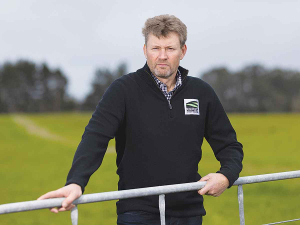New Zealand owned rural insurer FMG has announced an after tax profit of $26.7 million – its sixth consecutive profit.
“This has been another successful year for FMG,” says chief executive Chris Black. “Making a profit and increasing reserves each year supports our growth model and puts us in a strong position to be there for clients when the unexpected happens. Our reserves are currently more than double the minimum required by the Reserve Bank of NZ.”
Black says the result enables the company to keep premium increases to a minimum.
FMG’s pre-tax profit was underpinned by an underwriting result of $7.9m and investment income of about $23m. It increased its share of the overall insurance market to almost 5% and the rural insurance market to 42%.
Blacks says because FMG is mutual, it has a higher sense of accountability in giving back to the rural community.
“We do this in many ways including risk-advice service and sponsorships… graduate programmes and scholarships.
“In 2015 we partnered with the Mental Health Foundation to launch Farmstrong, a non-commercial rural wellness programme based on farmer insights and research to support farmers and growers on ways to ‘live well and farm well’. This initiative is different and timely.”











